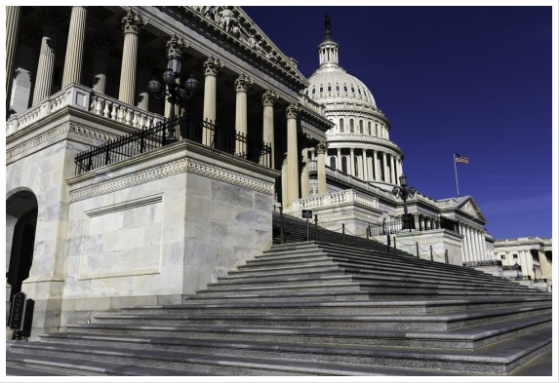This post first appeared on Risk Management Monitor. Read the original article.
 WASHINGTON—The RIMS Legislative Summit kicked off on Wednesday in Washington, D.C. with a panel lead by Congressional office staff.
WASHINGTON—The RIMS Legislative Summit kicked off on Wednesday in Washington, D.C. with a panel lead by Congressional office staff.
Panelists included Lisa Peto, chief counsel for the Financial Services Committee; Democratic Staff in the U.S. House of Representatives: Jason Tuber, Senior Advisor to Senator Menendez (D-NJ); Ed Skala, Deputy Staff Director for the House Financial Services Committee; and Brandon Beall, Professional Staff Member, Office of Senate Committee on Banking, Housing and Urban Affairs.
The focus was the once-again, looming expiration of the National Flood Insurance Program (NFIP). The program that was set to expire in September, but was saved with a temporary extension now set to expire again on Dec. 8.
The panelists, each of whom began with the disclaimer that these were their opinions and not the opinions of their office, came to a consensus that a new NFIP was critical, that a gap in coverage is certainly not ideal and they acknowledged that their offices were working on a bi-partisan resolution.
Some of the major concerns discussed were:
- Funding—who will fund the NFIP? If the NFIP expires or ceases to exist would the burden fall on the taxpayer and then ultimately on government anyway? Should excess flood coverage be privatized? There was also discussion on whether mandating states to offer certain protections for flood exposure would help the situation.
- Accessibility and Affordability—what measures must be included in the new bill to not only make sure flood insurance is available but that it is available at an affordable price?
- Residential vs. Commercial—The idea was discussed as to whether there should ultimately be two versions of the NFIP that separate residential and small businesses from large commercial businesses. It was noted that large commercial businesses might have flood coverage elsewhere or are better funded to retain some risk and, as such, should have the opportunity to opt out. This would spur new challenges to determine what qualifies a business as small or large (i.e., an online enterprise that generates considerable revenue but operates out of someone’s basement).
- Risk Mitigation—Should risk mitigation be a part of the final bill? Incentives for both the insurer and the insured would support organizations that practice good risk management. The argument was made, however, that not all residents and not all businesses have the funds for risk management. For example, not everyone has the money in the bank to raise the height of a house or storefront.
Jim McIntyre, RIMS Washington, D.C. counsel and chair of McIntyre & Lemon stated, “It is probable that we’re looking at another extension come December. Unfortunately for the National Flood Insurance Program, bills regarding trade, healthcare and immigration will take precedent at the moment and [the NFIP] might have to wait a bit longer.”
On Day 2 of RIMS Legislative Summit, about 50 RIMS members descended on Capitol Hill for meetings with congressional leaders. The goal is to share RIMS priorities for a long-term National Flood Insurance Program.
